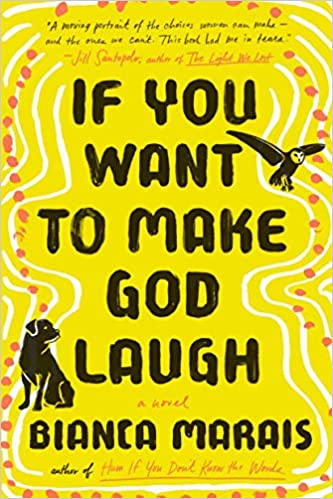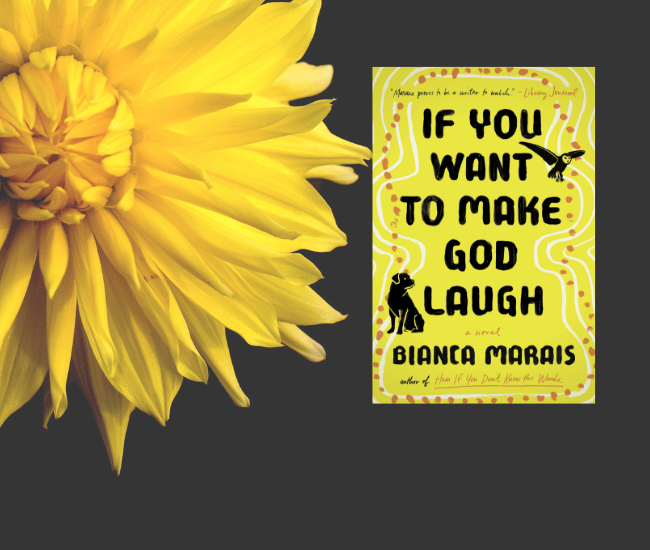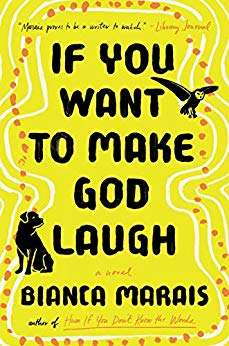If You Want to Make God Laugh by Bianca Marais
If You Want to Make God Laugh (Putnam Books) is a masterfully written emotional journey of three South African women where everyone is either running to or from something as they try to find peace and understand their calling. It is a testament to the incredible strength women have and to what lengths mothers will go to protect and care for their children. The wonderful novel is coming out this summer from Bianca Marais following her debut, Hum If You Don’t Know the Words. Chapters alternate points of view. Zodwa is young girl, raped, pregnant, living in a squatter camp and ashamed of her romantic feelings of infatuation with her close girl friend. When her baby is born, she is taken from her and later the same day her mother dies, leaving her alone, desperate and feeling lost. Delilah was raped when she was a teenager and forced to leave her child at the convent from which she was excommunicated due to her pregnancy. She spent her years repenting while working at an orphanage, alone and lost. After a career of stripping and feeling unhappy in her relationship, Delilah’s older sister, Ruth left her husband feeling sad and regretful for never being able to have a child. Ruth and Delilah haven’t spoken to each other since they were young. The estranged sisters meet at their parents’ empty house, Ruth intending to sell it and Delilah hoping to live there. Tension runs high between the siblings, but after a newborn black baby is left on the doorstop, Ruth realizes her calling is to adopt this child and give him the life he deserves. Delilah is not in agreement, and so much pain rises to the surface due to the past. As the sisters work to break down walls and understand each other’s emotions, they are faced with prejudice and harassment from the neighbors. The sisters decide to secure the house and hire a live-in maid to help with the baby. BookTrib dives further into If You Want to Make God Laugh with Bianca Marais.
Buy this Book!
Amazon
Genre: Fiction
Author: Bianca Marais
Publisher: Penguin
ISBN: 9780735219340




